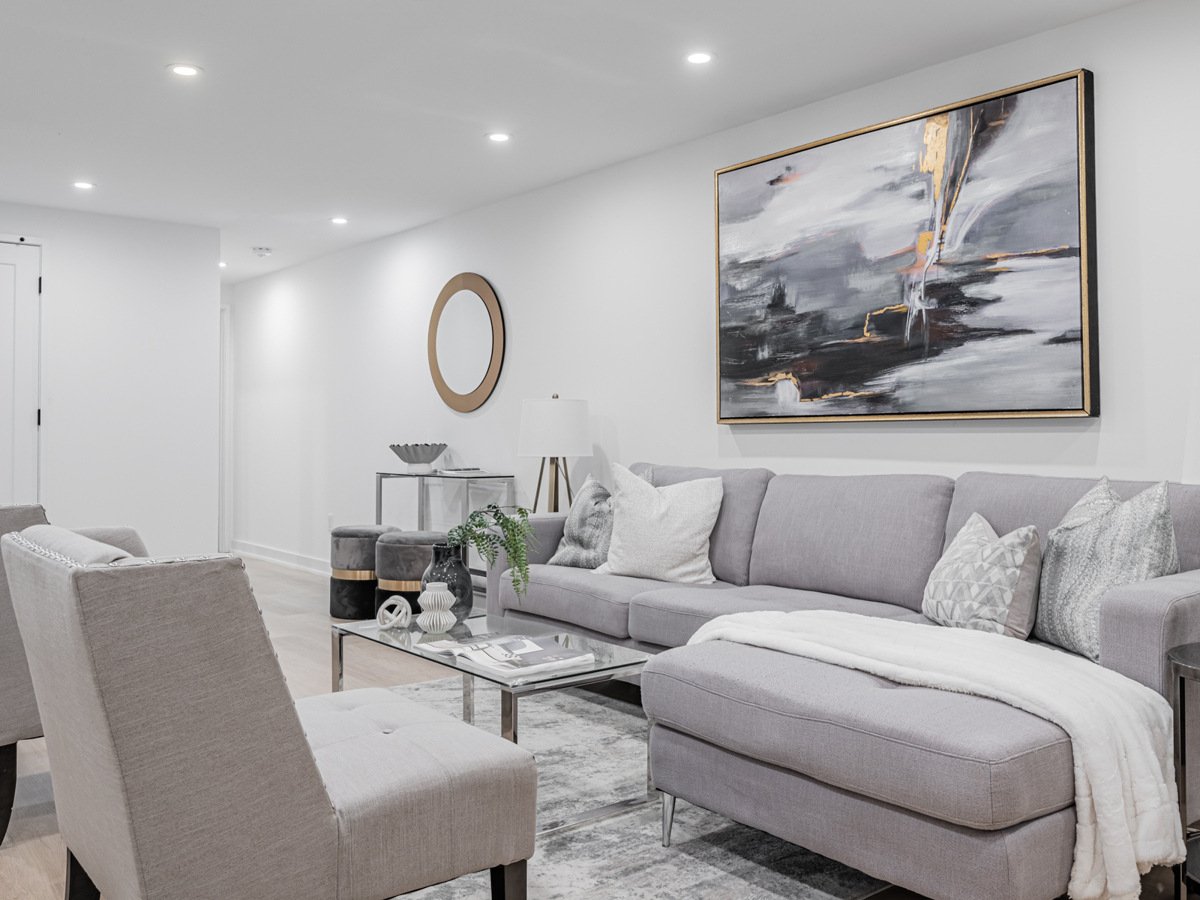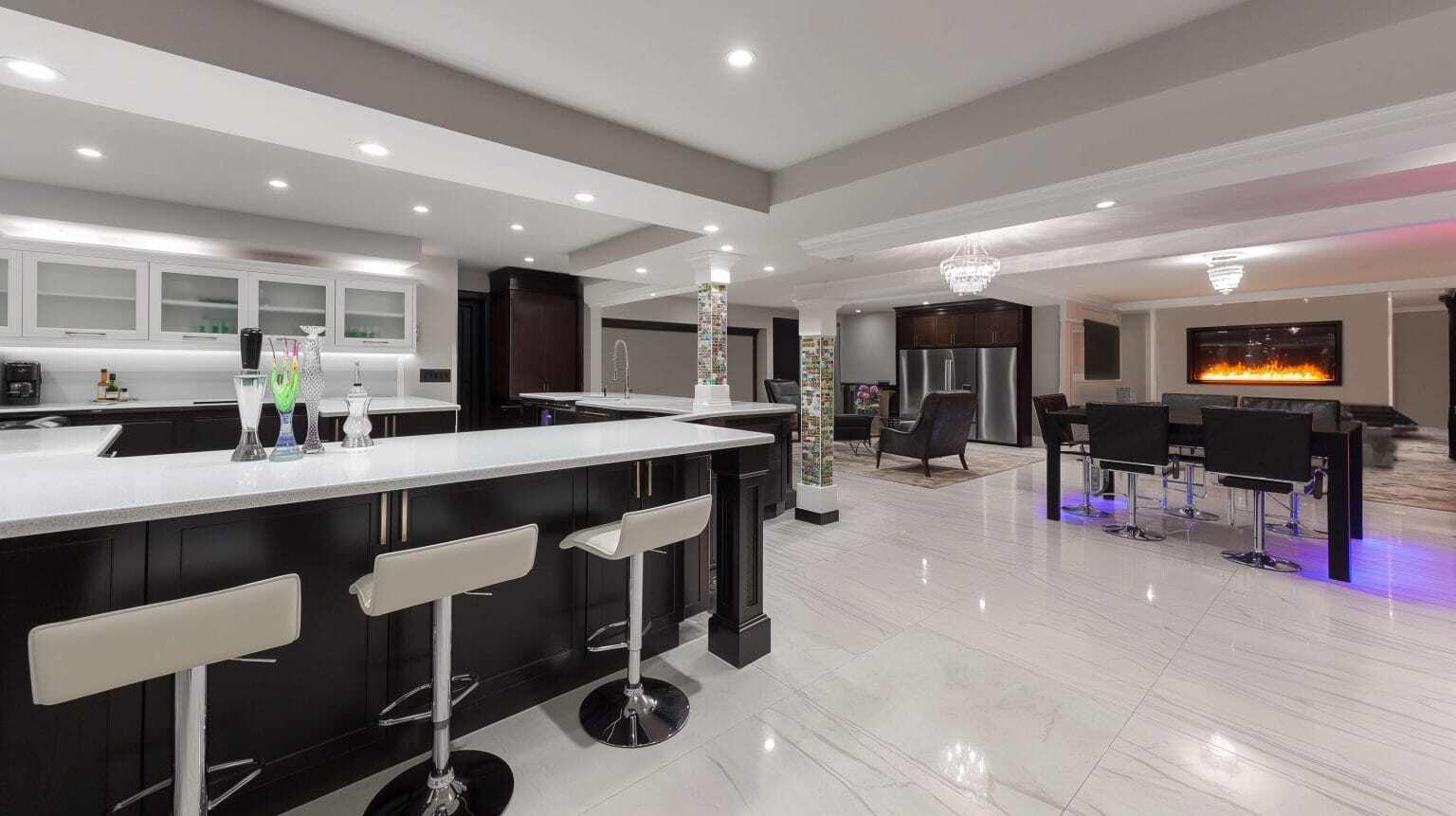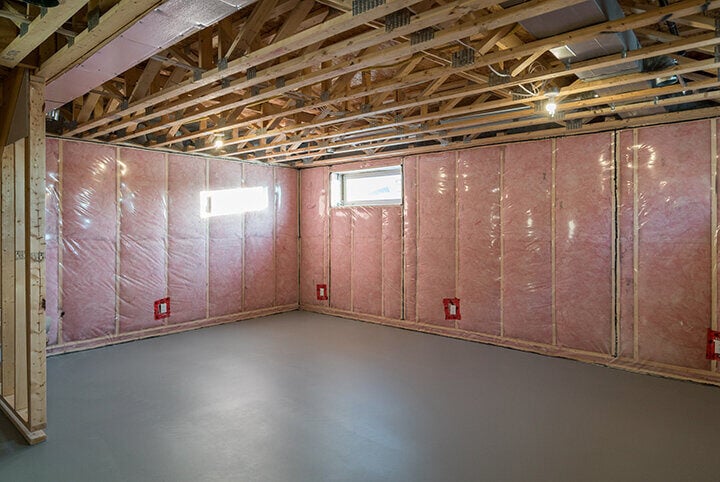Do You Need a Permit to Renovate a Basement in Ontario?
Do I Need a Permit to Renovate a Basement in Ontario? If you're considering renovating your basement in Ontario, one of the first questions you'll...

A basement renovation can transform unused space into a functional, attractive area that adds significant value to your home. However, without a proper budget, costs can quickly spiral out of control. By carefully planning your basement renovation budget, you can avoid financial stress, stick to your goals, and complete your project on time. Whether you're aiming for a simple basement finish or a full-scale remodel, knowing how to budget effectively is key.
Table Of Content
Step 1: Determine the Scope of Your Basement Renovation
Step 2: Research Average Basement Renovation Costs
Step 4: Include Hidden and Additional Costs
Step 5: Use a Basement Renovation Cost Estimator
Step 6: Plan for Financing Your Basement Renovation
Step 7: Prioritize Must-Have Features and Cut Costs
Step 8: Track and Monitor Your Expenses
FAQs About Budgeting for a Basement Renovation
Before you start budgeting, define the scope of your renovation. Are you planning a basic finish with drywall, flooring, and lighting, or are you going for a complete remodel that includes a bathroom, home office, or kitchenette?
Clearly defining your goals helps determine the overall cost to complete a basement and ensures you focus your budget on what matters most.
Understanding the typical basement renovation costs in your area is the next step. Here’s a general breakdown of the cost to finish a basement:
For homeowners in urban areas like Toronto, renovation costs tend to be higher. On average, a basement reno in Toronto costs around $35,000 to $80,000. Factors such as location, contractor rates, and material choices can also influence the final cost.
Another way to estimate the cost to finish a basement is to calculate the cost per square foot, which ranges from $30 to $90. Knowing your basement’s size will give you a ballpark figure to help you set your initial budget.
When creating your basement renovation budget, it’s important to break down the costs into categories. Here’s a list of typical expenses involved in a basement remodel:
Framing the walls and installing insulation are key steps in making your basement a livable space. Proper insulation ensures energy efficiency and comfort.
Both drywall and ceiling installation are crucial for giving your basement a finished look. Drop ceilings are more affordable, while drywall ceilings provide a more seamless finish.
Choosing the right flooring depends on your basement’s function. Vinyl is waterproof and budget-friendly, while carpet offers warmth and comfort.
Upgrading or installing new electrical, plumbing, and HVAC systems is essential for creating a comfortable, safe space. These elements can significantly impact your basement renovation cost.
These final touches complete your basement renovation and bring your vision to life.
While it’s tempting to focus solely on visible renovation costs, don’t forget about potential hidden expenses. These include:
Setting aside an additional 10-15% contingency fund in your budget will help cover unexpected expenses and prevent delays.
To get a more accurate estimate, consider using a basement renovation cost estimator. These tools allow you to input details such as square footage, types of materials, and additional features, giving you a clearer picture of how much your renovation will cost. You can also consult contractors for detailed quotes.
If your basement renovation cost exceeds your immediate budget, you may need to explore financing options. Here are some popular choices:
Consider your financial situation and repayment ability before deciding on the best financing option.
To ensure your project stays within budget, focus on must-have features first and consider cutting costs on less essential elements. Here are some ways to save on your renovation:
Throughout the renovation, keep track of all expenses to avoid overspending. Regularly check your budget against actual costs and adjust as needed. Monitoring your expenses ensures that you stay on track and meet your financial goals.
How much does finishing a basement cost?
Finishing a basement typically costs between $30,000 and $50,000, depending on the size and materials used.
How much cost to finish a basement per square foot?
The cost per square foot to finish a basement generally ranges from $30 to $90, depending on the complexity of the project.
What is the average cost of a basement remodel in Toronto?
For a basement reno in Toronto, the average cost is between $35,000 and $80,000, depending on the scope and materials.
Can I finish my basement for under $5,000?
While difficult, finishing a basement for under $5,000 may be possible with DIY labor and budget-friendly materials. However, it’s generally better suited for smaller, basic renovations.
What are hidden costs to consider in a basement renovation?
Common hidden costs include permits, waterproofing, and unexpected structural repairs, which can add several thousand dollars to your budget.
A basement renovation can change your home and raise its value. However, careful budgeting is important to avoid surprises and stay on track. By following these steps—determining the scope, researching costs, breaking down expenses, and prioritizing must-haves—you can create a realistic, manageable budget that ensures a successful project. Whether you're planning a simple finish or a luxury remodel, a well-planned budget is the foundation of your renovation success.

Do I Need a Permit to Renovate a Basement in Ontario? If you're considering renovating your basement in Ontario, one of the first questions you'll...

Finishing a basement is one of the most effective ways to add livable space and increase the value of your home in the Greater Toronto Area (GTA)....

7 min read
Meeting the Minimum R-Value for a Basement in Ontario Meeting Ontario’s minimum R-value requirements for basement insulation is essential...